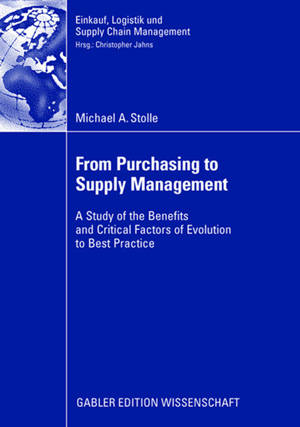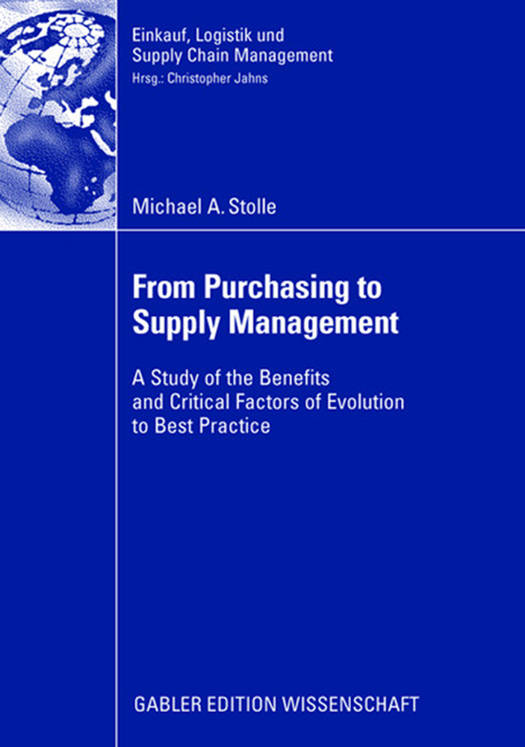
- Afhalen na 1 uur in een winkel met voorraad
- Gratis thuislevering in België vanaf € 30
- Ruim aanbod met 7 miljoen producten
- Afhalen na 1 uur in een winkel met voorraad
- Gratis thuislevering in België vanaf € 30
- Ruim aanbod met 7 miljoen producten
Zoeken
From Purchasing to Supply Management
A Study of the Benefits and Critical Factors of Evolution to Best Practice
Michael A Stolle
€ 52,95
+ 105 punten
Omschrijving
Supply management has received increased attention both in research and practice only recently. For decades, purchasing management was considered one of the least complex business functions. However, in a world of decreasing in-house value add in nearly all industries, it has become strategically critical for most companies to pay closer attention to purchasing spend. Many companies found that there is a lot more to have from suppliers than "the right goods at the right place at the right time". Several researchers investigating the transition from traditional purchasing to strategic supply management found a discrepancy between the general discussion of strategic supply management and reality in most companies. Given the well-known examples of high-performing purchasing organizations and the myriade of books both by researchers and practitioners on what good practices in supply management look like, this is an interesting observation. This dissertation investigates reasons for this discrepancy to help companies overcome the barriers of purchasing evolution. Michael Stolle combines organizational theories on organizational learning, resource-based view, and principal-agent conflicts to explain the challenges such a profound change of mindsets and culture presents. He develops a theoretical framework of purchasing evolution that shows the complex interactions of different driving factors that have to go together to make a successful transition possible. Finally, an interview-based empirical study is used to verify this framework empirically.
Specificaties
Betrokkenen
- Auteur(s):
- Uitgeverij:
Inhoud
- Aantal bladzijden:
- 208
- Taal:
- Engels
- Reeks:
Eigenschappen
- Productcode (EAN):
- 9783834908872
- Verschijningsdatum:
- 26/02/2008
- Uitvoering:
- Paperback
- Formaat:
- Trade paperback (VS)
- Afmetingen:
- 148 mm x 210 mm
- Gewicht:
- 276 g

Alleen bij Standaard Boekhandel
+ 105 punten op je klantenkaart van Standaard Boekhandel
Beoordelingen
We publiceren alleen reviews die voldoen aan de voorwaarden voor reviews. Bekijk onze voorwaarden voor reviews.











